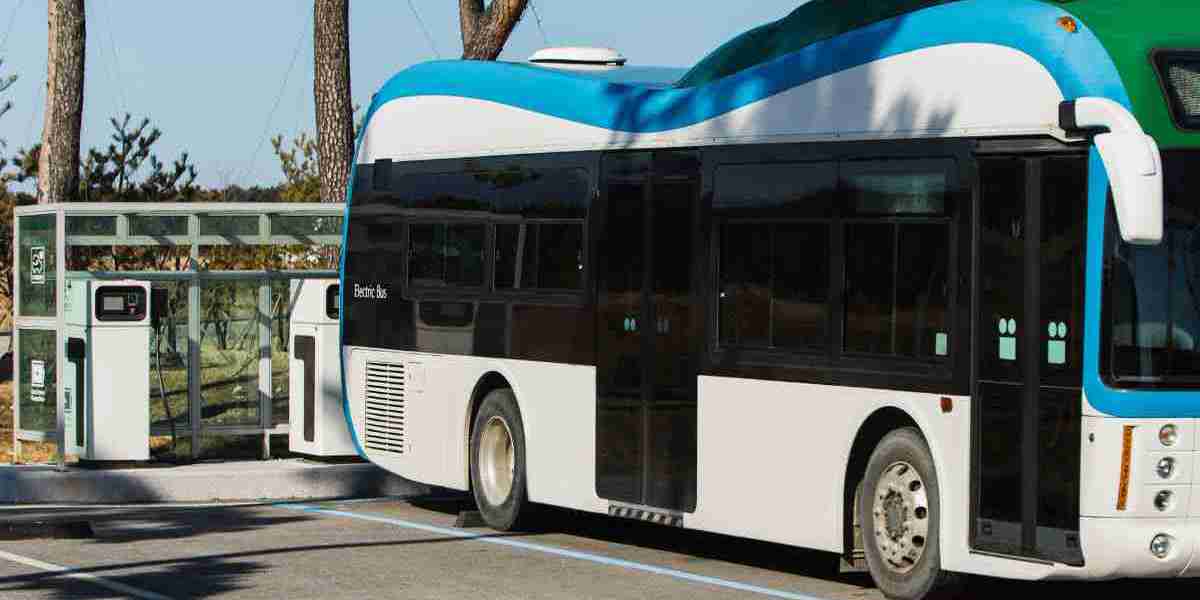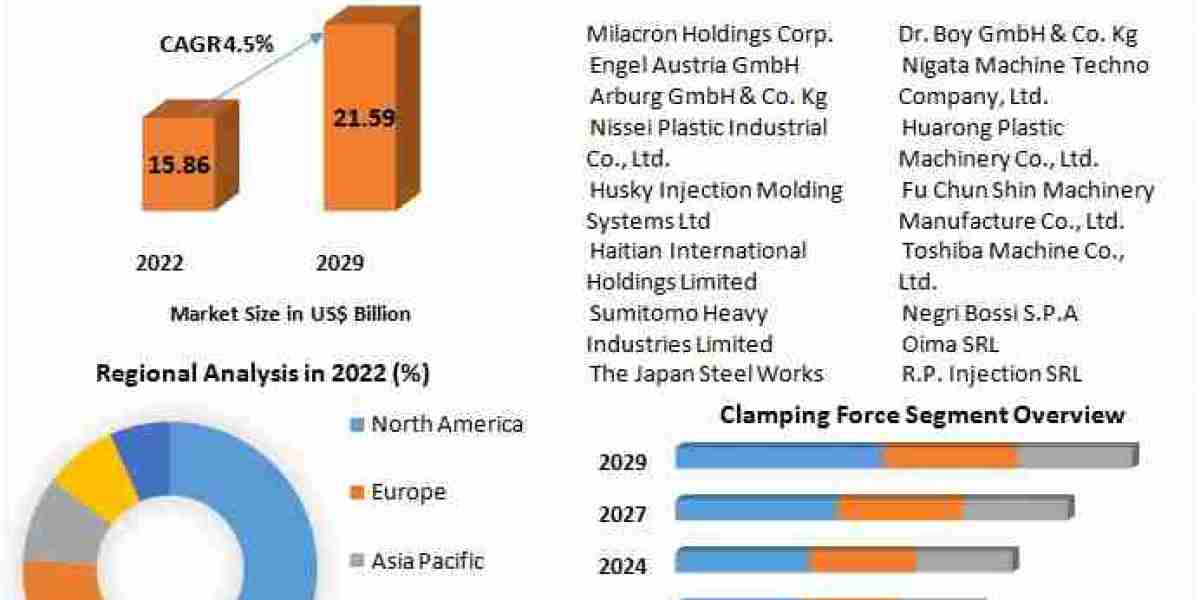In recent years, Latin America has been witnessing a significant shift towards sustainable transportation solutions, particularly in the wake of rising environmental concerns and the need to combat urban pollution. One of the prominent developments in this regard is the burgeoning Latin America electric bus market size. With a projected Compound Annual Growth Rate (CAGR) of 14.6% between 2024 and 2032, this market segment is poised for substantial expansion, driven by various factors including rapid urbanization, heightened pollution levels, and evolving regulatory frameworks.
Market Overview:
The Latin America electric bus market is experiencing a rapid surge, propelled by the pressing need for eco-friendly public transportation alternatives across major urban centers in the region. The market encompasses a diverse range of electric bus manufacturers, technology providers, and stakeholders, contributing to a dynamic landscape of innovation and growth.
Key Industry Developments:
Several key industry developments are shaping the trajectory of the Latin America electric bus market:
Government Initiatives: Governments across Latin America are increasingly promoting the adoption of electric buses through various incentives, subsidies, and policy frameworks aimed at reducing carbon emissions and improving air quality.
Technological Advancements: Advancements in battery technology, charging infrastructure, and electric drivetrain systems are enhancing the performance, range, and efficiency of electric buses, making them more viable alternatives to traditional diesel-powered vehicles.
Strategic Partnerships: Collaborations between public transit agencies, private sector companies, and international organizations are fostering the deployment of electric buses and supporting the development of sustainable transportation ecosystems.
Investment Inflows: Growing investments from venture capitalists, financial institutions, and clean energy funds are fueling the expansion of electric bus manufacturing facilities, research, and development initiatives in Latin America.
Driving Factors:
Several driving factors are fueling the growth of the Latin America electric bus market:
Rapid Urbanization: The rapid urbanization witnessed across Latin American cities is leading to increased demand for efficient, environmentally friendly public transportation solutions, driving the adoption of electric buses.
Environmental Concerns: Rising awareness about the detrimental impact of vehicular pollution on air quality and public health is prompting governments and transit authorities to prioritize the electrification of public transit fleets.
Regulatory Support: Stringent emission regulations and sustainability targets set by governments are incentivizing the transition towards electric mobility solutions, including electric buses, in Latin America.
Cost Savings: Electric buses offer significant long-term cost savings in terms of fuel expenses and maintenance compared to conventional diesel buses, making them economically attractive for fleet operators.
Enhanced Performance: Electric buses are known for their smooth, silent operation, reduced noise pollution, and superior acceleration, offering passengers a more comfortable and enjoyable travel experience.
COVID-19 Impact:
The COVID-19 pandemic has had both positive and negative impacts on the Latin America electric bus market. On one hand, the pandemic has highlighted the importance of sustainable transportation and resilience in the face of global crises, thereby accelerating the transition towards electric buses. On the other hand, disruptions in supply chains, economic uncertainty, and budget constraints have posed challenges to the adoption of electric buses in some regions.
Restraint Factors:
Despite the promising growth prospects, the Latin America electric bus market faces several restraint factors that could impede its expansion:
High Initial Costs: The upfront costs of electric buses and associated charging infrastructure remain relatively high compared to traditional diesel buses, posing a barrier to adoption for some transit agencies and operators.
Infrastructure Challenges: Limited availability of charging infrastructure and grid capacity constraints in certain regions may hinder the widespread deployment of electric buses and increase reliance on fossil fuels.
Range Anxiety: Concerns about range limitations and charging infrastructure availability may deter potential buyers from investing in electric buses, especially for long-distance routes or intercity travel.
Policy Uncertainty: Fluctuations in government policies, regulatory frameworks, and incentive programs could create uncertainty for investors and manufacturers in the electric bus market, impacting long-term planning and investment decisions.
Market Segmentation:
The Latin America electric bus market can be segmented based on various factors including:
Type: Battery Electric Bus (BEB), Plug-in Hybrid Electric Bus (PHEB), Fuel Cell Electric Bus (FCEB)
End-User: Public Transit Agencies, Private Fleet Operators, Rental Services
Application: City Transportation, Intercity Travel, Tourism, Others
Region: Brazil, Mexico, Argentina, Colombia, Chile, Peru, Rest of Latin America
Market Outlook:
Looking ahead, the Latin America electric bus market is poised for robust growth, driven by ongoing urbanization trends, environmental imperatives, and supportive policy measures. With advancements in technology, declining battery costs, and increasing economies of scale, electric buses are expected to become more competitive and mainstream in the region's public transportation networks.
Trends:
Several key trends are shaping the evolution of the Latin America electric bus market:
Electrification of Public Transit: Governments and transit agencies are increasingly prioritizing the electrification of public transit fleets to reduce emissions, enhance energy security, and promote sustainable mobility solutions.
Integration of Smart Technologies: Electric buses are being equipped with advanced connectivity, telematics, and monitoring systems to optimize fleet management, improve operational efficiency, and enhance passenger experience.
Expansion of Charging Infrastructure: Investments in charging infrastructure expansion and interoperability are facilitating the widespread adoption of electric buses and alleviating range anxiety concerns among operators and users.
Adoption of Sustainable Mobility Solutions: Growing consumer demand for eco-friendly transportation options, coupled with regulatory mandates and corporate sustainability initiatives, is driving the uptake of electric buses and other zero-emission vehicles.
Collaboration and Partnerships: Collaboration between governments, private sector companies, and technology providers is fostering innovation, knowledge sharing, and capacity building in the electric bus ecosystem, accelerating market growth and deployment.
Industry Segmentation:
In addition to the electric bus market, the broader transportation sector in Latin America encompasses various subcategories and segments, including:
Public Transit: Bus Rapid Transit (BRT) Systems, Metro Rail Networks, Tramways
Micro-Mobility: Electric Scooters, Bicycles, Shared Mobility Services
Freight Transport: Electric Trucks, Cargo Bikes, Last-Mile Delivery Solutions
Aviation: Electric Aircraft, Sustainable Aviation Fuels (SAF), Airport Electrification Initiatives
Regional Analysis:
Latin America comprises diverse markets with unique challenges and opportunities for electric bus adoption:
Brazil: As one of the largest economies in the region, Brazil presents significant opportunities for electric bus manufacturers and suppliers, supported by government initiatives and urban mobility projects in cities like São Paulo and Rio de Janeiro.
Mexico: Mexico's burgeoning urban centers, including Mexico City and Guadalajara, are witnessing increasing investments in electric mobility infrastructure and public transportation systems, driving demand for electric buses.
Argentina: With a growing focus on sustainability and renewable energy, Argentina is exploring avenues for electric bus deployment, particularly in Buenos Aires and other metropolitan areas.
Colombia: Colombia's commitment to reducing greenhouse gas emissions and improving air quality is driving the adoption of electric buses in cities like Bogotá, Medellín, and Cali, supported by public-private partnerships and international collaborations.
Chile: Chile has emerged as a regional leader in electric mobility, with ambitious targets for electric vehicle adoption and investments in charging infrastructure, positioning the country as a key market for electric buses in Latin America.
Analysis:
The Latin America electric bus market presents immense potential for stakeholders across the value chain, from manufacturers and suppliers to policymakers and investors. However, realizing this potential requires concerted efforts to address key challenges such as cost barriers, infrastructure limitations, and policy uncertainties while capitalizing on emerging opportunities in sustainable transportation and clean energy innovation.
News:
Recent developments in the Latin America electric bus market include:
In December 2023, Brazil announced plans to invest $1 billion in electric buses and charging infrastructure as part of its National Electric Mobility Plan, aiming to deploy 20,000 electric buses by 2030.
Mexico City launched a pilot program in collaboration with Chinese electric bus manufacturer BYD to test the feasibility of electric buses in its public transit fleet, with plans to expand the initiative to other cities across the country.
Argentina's Ministry of Transport unveiled a new subsidy program to incentivize the purchase of electric buses by public transit operators, offering financial support and technical assistance to facilitate fleet electrification efforts.
Top Impacting Factors:
Several factors are expected to have a significant impact on the Latin America electric bus market in the coming years:
Government Policies and Regulations: Policy support, regulatory incentives, and emissions standards play a critical role in shaping the adoption and deployment of electric buses in Latin America, influencing market dynamics and investment decisions.
Technological Innovation: Advancements in battery technology, electric drivetrains, and charging infrastructure are key drivers of market growth, enabling longer ranges, faster charging times, and improved performance for electric buses.
Economic Considerations: Cost competitiveness, total cost of ownership, and financial incentives impact the viability and attractiveness of electric buses compared to conventional diesel vehicles, influencing purchasing decisions by fleet operators and transit agencies.
Environmental Awareness: Growing public awareness about the environmental impact of transportation emissions and climate change is driving demand for cleaner, greener mobility solutions, including electric buses, among policymakers, businesses, and consumers.
Target Audience:
The target audience for the Latin America electric bus market includes:
Government Agencies and Regulators: Ministries of Transport, Urban Planning Authorities, Environmental Agencies
Public Transit Operators: Municipalities, Transit Authorities, Bus Companies, Fleet Managers
Automotive Manufacturers: Electric Bus OEMs, Component Suppliers, Technology Providers
Investors and Financial Institutions: Venture Capitalists, Private Equity Firms, Clean Energy Funds
End Users: Commuters, Passengers, Travelers, Urban Residents
Sub-Category Focus: Food and Beverages - Sweeteners
In addition to the electric bus market, the food and beverages sector in Latin America encompasses various subcategories, including sweeteners.
Major players in:
Mercedes Benz Group AG
BYD Company Limited
AB Volvo
Hyundai Motor Co.
Yutong Bus Co., Ltd.
Higer Bus Company Limited
Eletra Industrial LTDA
IVECO S.p.A.
Xiamen King Long United Automotive Industry Co., Ltd.
Anhui Ankai Automobile Co. Ltd.
Others
Opportunities:
The Latin America electric bus market presents several opportunities for stakeholders:
Market Expansion: Untapped markets, growing urbanization, and supportive regulatory frameworks offer avenues for market expansion and penetration.
Technological Innovation: Investments in research and development, collaboration with technology partners, and adoption of advanced manufacturing processes can drive innovation and product differentiation.
Sustainable Mobility Solutions: Rising demand for sustainable transportation, coupled with public awareness campaigns and corporate sustainability goals, creates opportunities for promoting electric buses as eco-friendly alternatives.
Economic Development: Investments in electric bus manufacturing, charging infrastructure deployment, and supply chain localization can stimulate economic growth, create jobs, and foster industrial development in Latin America.
Challenges:
Despite the promising outlook, the Latin America electric bus market faces several challenges:
Infrastructure Constraints: Limited availability of charging infrastructure, grid capacity constraints, and logistical challenges may hinder the widespread adoption and deployment of electric buses.
Cost Considerations: High upfront costs, limited financing options, and uncertainty about return on investment pose challenges for fleet operators and transit agencies considering electric bus adoption.
Regulatory Uncertainty: Fluctuations in government policies, tax incentives, and subsidy programs create uncertainty for market players, impacting investment decisions and long-term planning.
Technology Risks: Reliability concerns, performance limitations, and battery life issues associated with electric buses may deter potential buyers and undermine confidence in the technology.
Market Competition: Intensifying competition from traditional bus manufacturers, hybrid technology providers, and emerging startups poses challenges for established players and new entrants in the electric bus market.
Scope:
The Latin America electric bus market offers a wide scope for growth and innovation, driven by evolving consumer preferences, technological advancements, and policy support for sustainable transportation solutions. With a diverse range of market players, regulatory frameworks, and infrastructure requirements, the market presents both opportunities and challenges for stakeholders seeking to capitalize on the transition towards electrification and decarbonization in the region's public transit sector.
The Latin America electric bus market is poised for significant expansion, driven by a confluence of factors including rapid urbanization, environmental concerns, and supportive policy measures. While challenges such as infrastructure constraints, cost considerations, and regulatory uncertainties persist, the market presents immense opportunities for stakeholders across the value chain to contribute towards building a cleaner, greener, and more sustainable future for urban mobility in Latin America. By embracing innovation, collaboration, and strategic investments, the region can accelerate the transition towards electric buses and pave the way for a more resilient and inclusive transportation ecosystem.








